Child Development Report: Cognitive, Psychosocial, and Play Aspects
VerifiedAdded on 2020/10/04
|6
|1402
|360
Report
AI Summary
This report delves into the multifaceted realm of child development, concentrating on the cognitive milestones achieved between 18 to 24 months, as described by Piaget's sensorimotor stage. It examines the cognitive development of a child, highlighting the emergence of language skills and understanding of words. The report also explores Erikson's psychosocial development stages, particularly focusing on the infancy stage and the crucial role of trust. Furthermore, the report investigates the significance of imagination and pretend play in fostering social, emotional, and cognitive growth, including language and thinking skills. The findings emphasize the importance of parental involvement and support in nurturing a child's overall development. The report concludes by underscoring the interconnectedness of cognitive, psychosocial, and imaginative aspects in a child's formative years.
1 out of 6
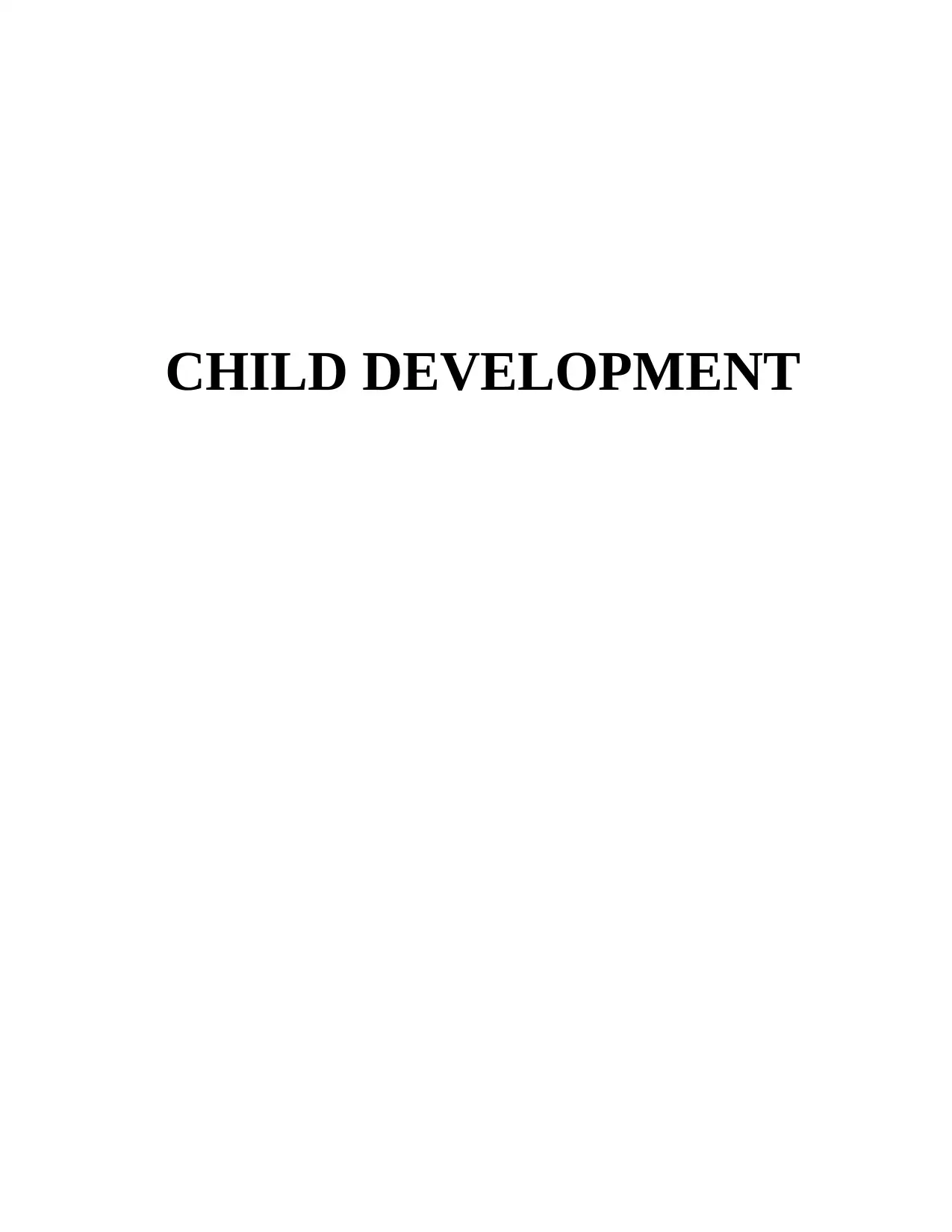
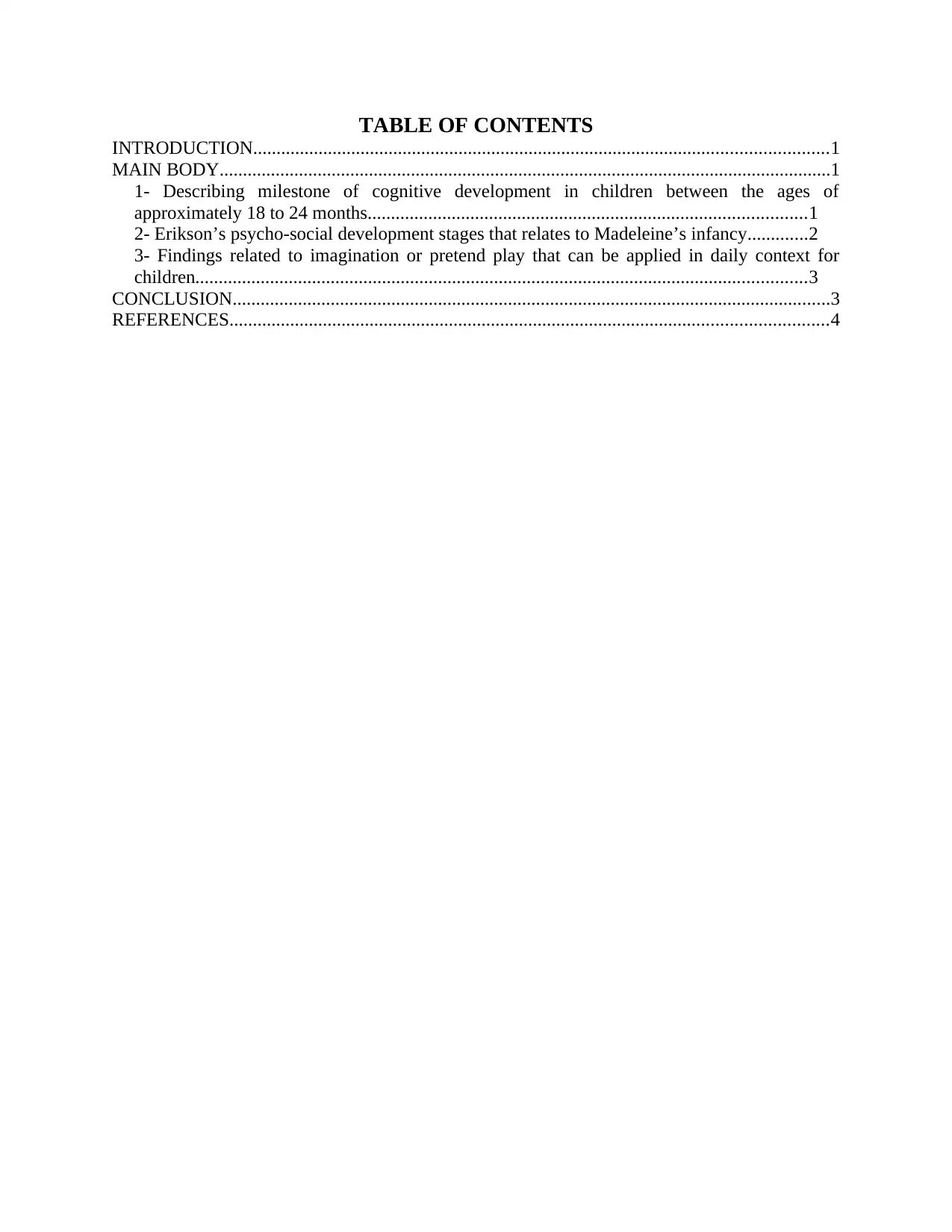
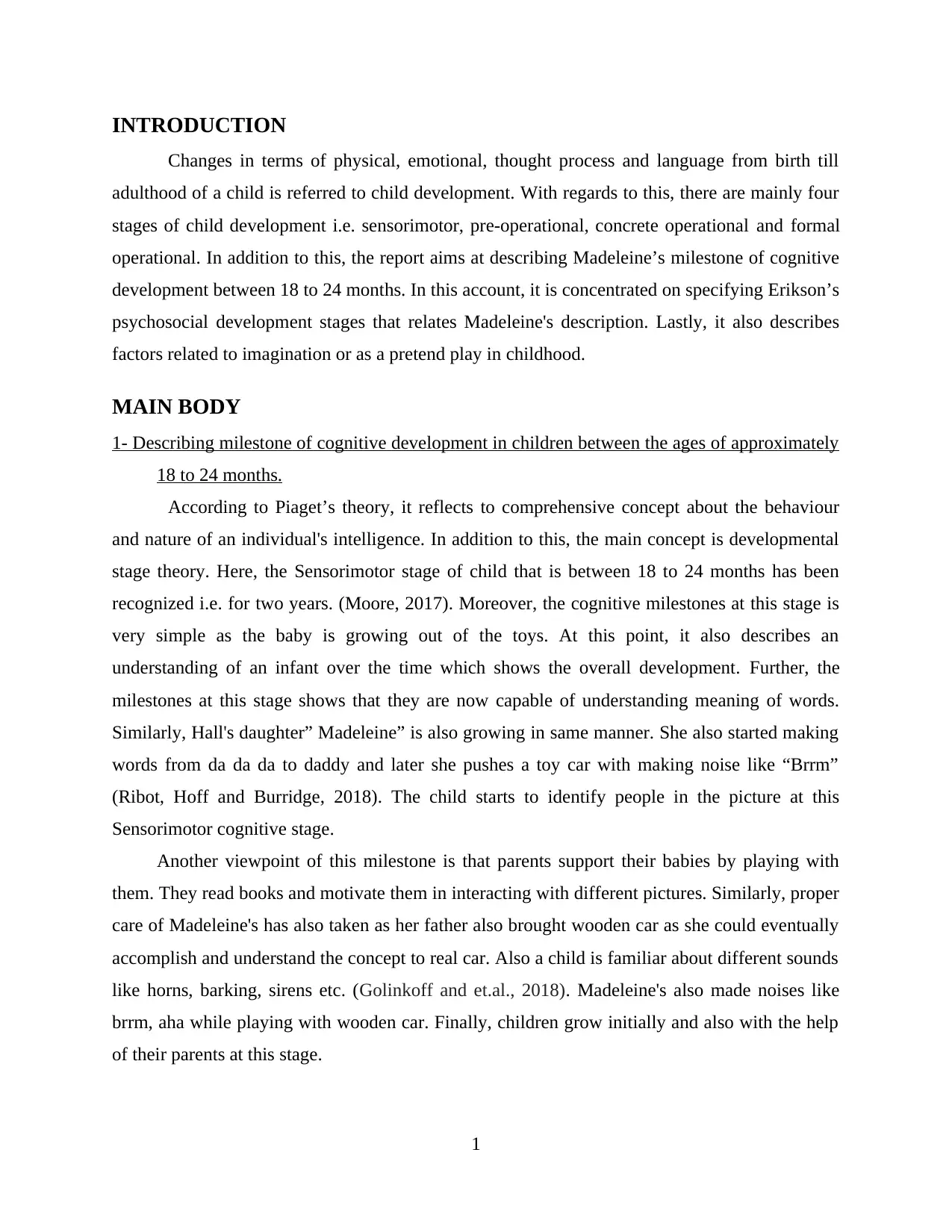
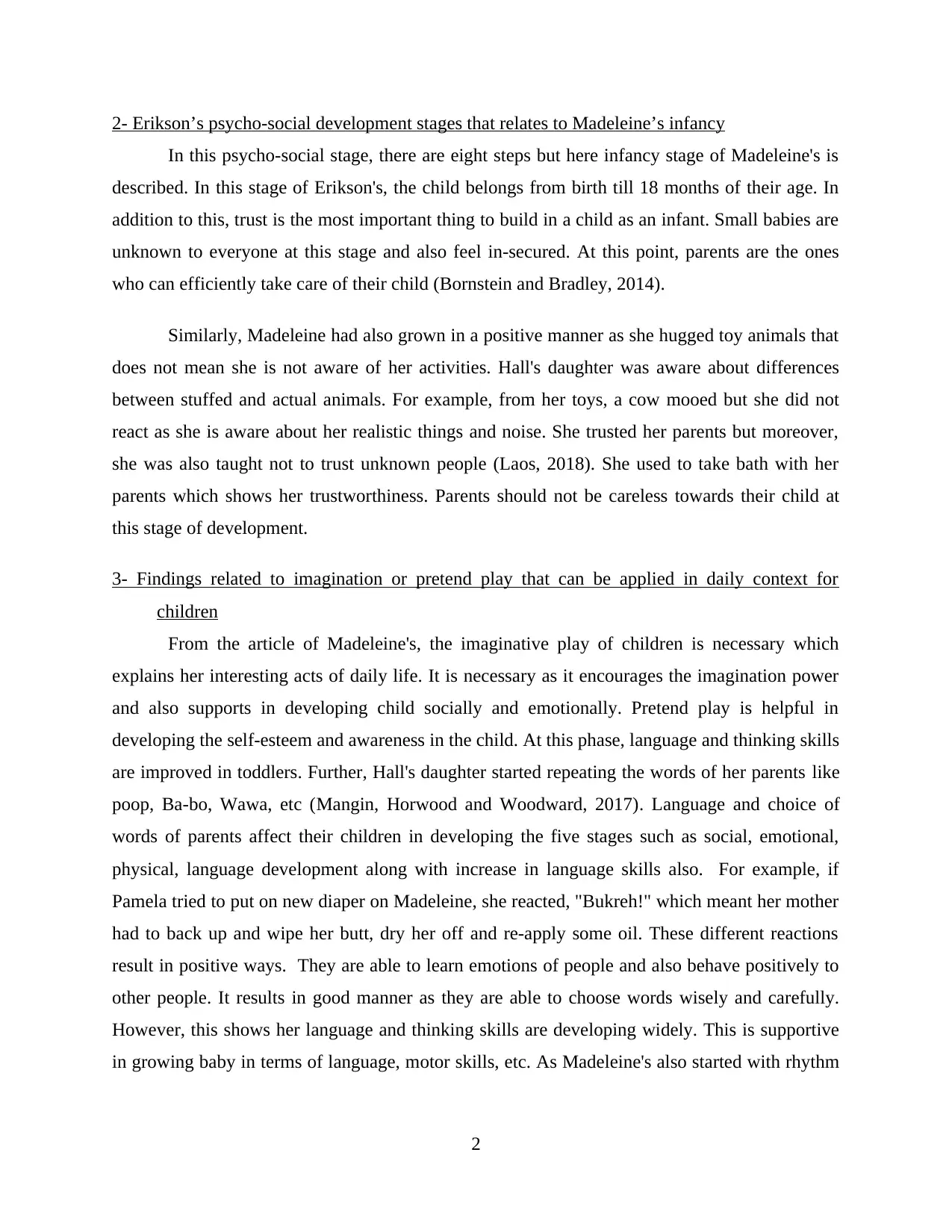
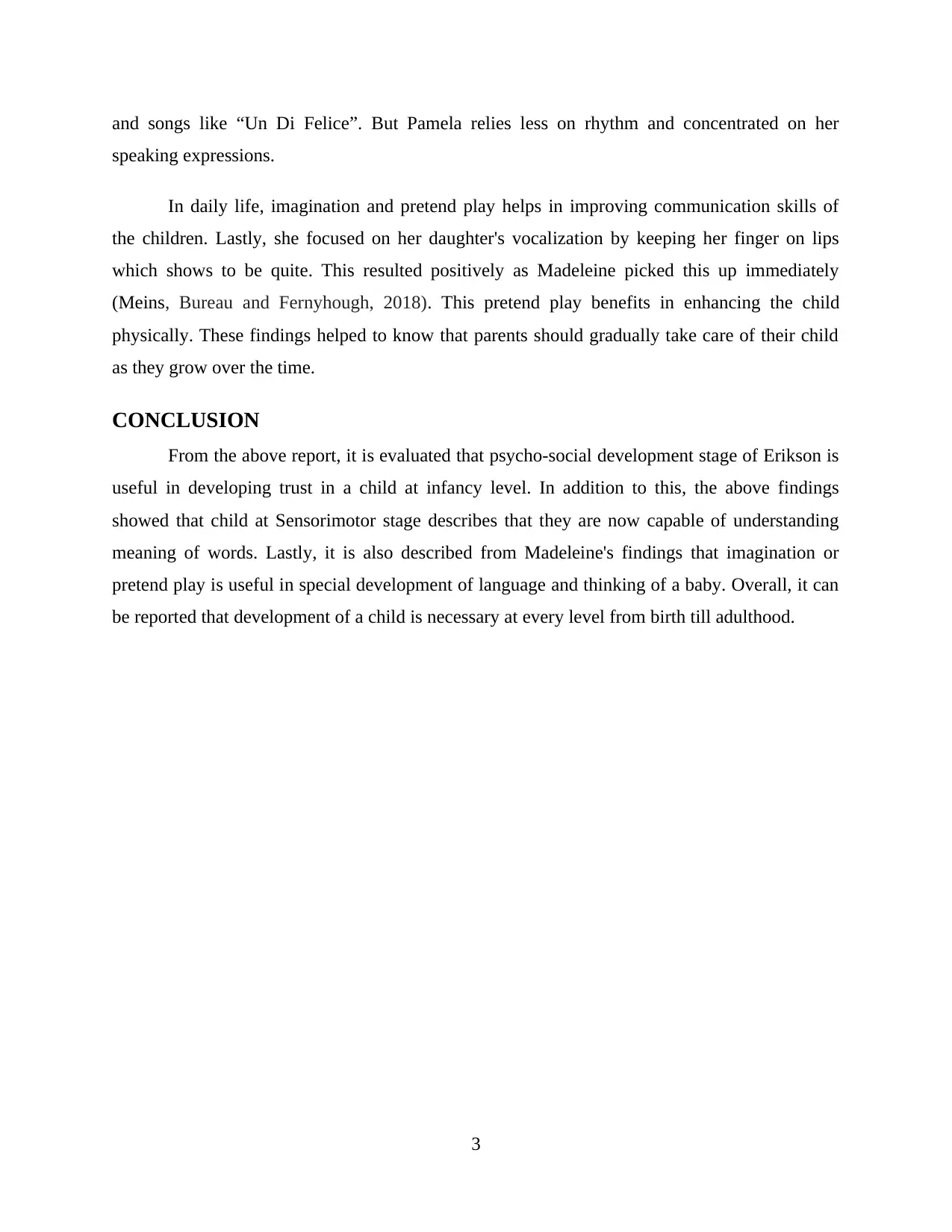
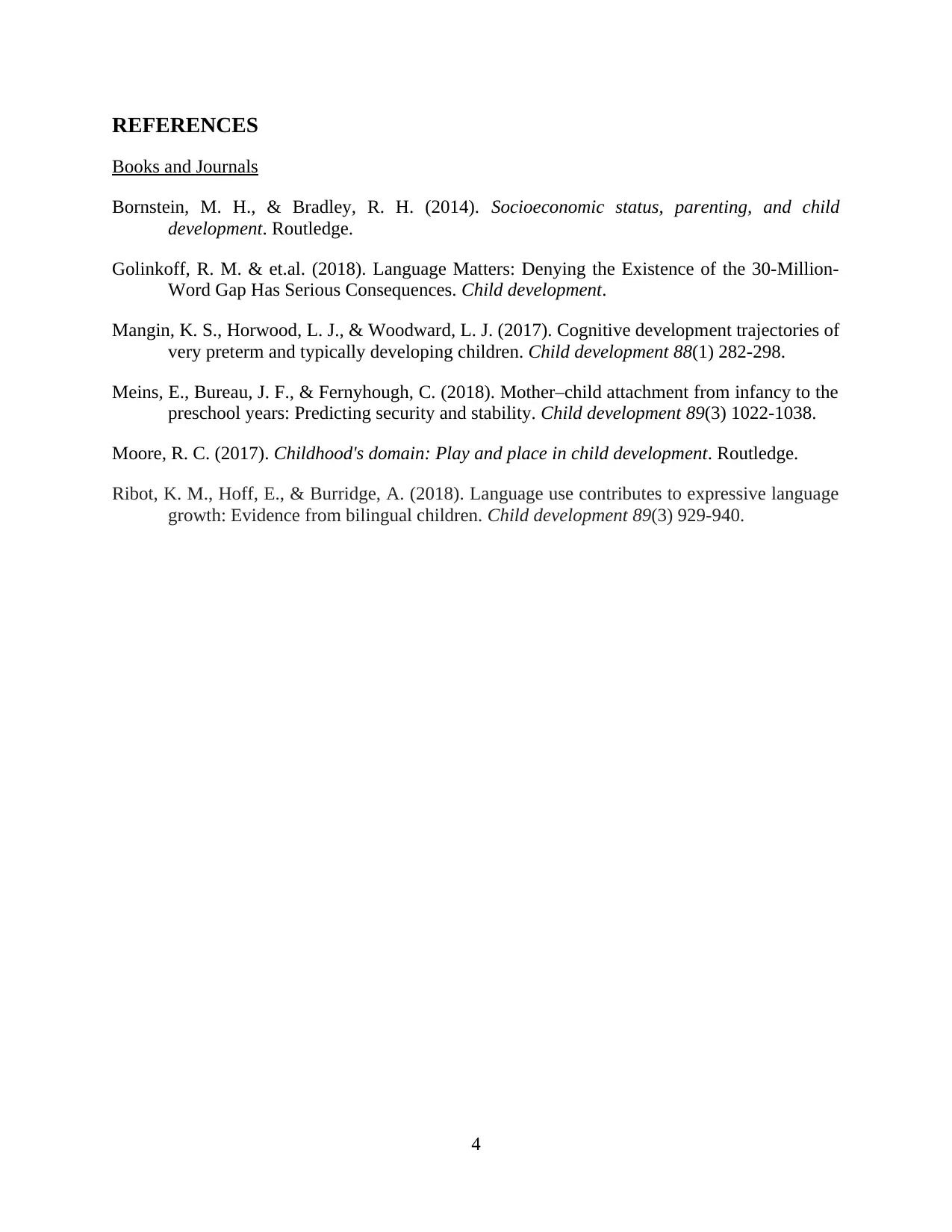






![[object Object]](/_next/static/media/star-bottom.7253800d.svg)